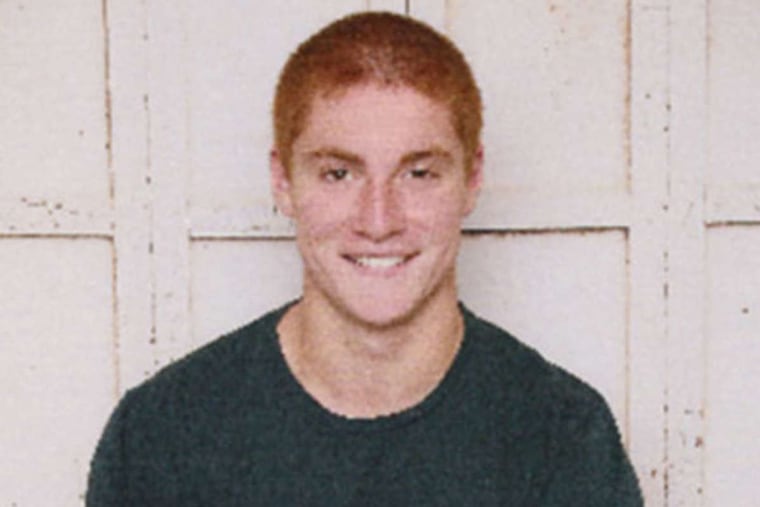Penn State frat leaders apologize in student's death
"The fraternity experience failed your son," they said in an open letter to the family of Tim Piazza, the sophomore who died after pledge night in February.

Student leaders of Pennsylvania State University's fraternity system apologized to the family of Tim Piazza, the sophomore who died after pledge night in February, in an open letter released this week.
"The fraternity experience failed your son," wrote Penn State's Interfraternity Council executive board in the letter, released publicly Wednesday evening.
The letter also acknowledged problems with hazing and alcohol abuse, and said the council was committed to making improvements in the fraternity system.
The fraternity chapter presidents also announced they would cancel all social events for the next two weekends, and use that time for philanthropy and "to reflect on the values of the Greek community and to consider any necessary changes that need to be made."
The open letter from the nine-member executive board — issued by the group's communication's director, Michael Cavallaro, a junior from Milford Pa., and a member of Pi Kappa Alpha — followed a blog post by Penn State president Eric Barron earlier this week warning that the Greek system at Penn State could come to an end if behavior doesn't improve. Barron wrote the post after nine of the university's fraternities and sororities were found to have violated new rules put in place following Piazza's death and one fraternity, Sigma Alpha Mu, violated almost every rule.
But the Interfraternity Council also took issue with the university for going without a full-time director of fraternity and sorority life for almost two years, which it said was "extremely concerning," and for cutting students out of the decision to issue new rules for the Greek system, including delaying recruitment until second semester of freshman year and mandating fewer and smaller parties.
"We are ready to change," the group wrote, "but transformation cannot happen without partnership and a willingness to listen to and work with one another. Instead of talking through open letters in the media — it's disappointing we have to communicate in this manner — meet with us, work with us, and collaborate with us. We are your students, too."
Penn State in response said although its search for a new fraternity and sorority life director was unsuccessful, it will continue to look and in the meantime has an experienced interim director who has expanded the staff, hiring two full time assistant directors and three graduate employees.
The university also contended that it engaged student input for more than a year as part of task force on Greek life. That task force could not come to agreement on major issues and in the wake of Piazza's death, the university unilaterally imposed new rules.
"We welcome our student leaders' interest and participation as we look to ensure meaningful change necessary for the Greek system at Penn State," said Lawrence Lokman, the university's vice president for strategic communications.
The discord between university leadership and the council has been building since the death of Piazza, 19, an engineering major from Lebanon, N.J., who was intoxicated and fell down the basement stairs at Beta Theta Pi during pledge night on Feb. 2. He was moved to a couch upstairs but fraternity brothers didn't call for emergency help until the next morning, nearly 12 hours later. Piazza died the following day.
The university has permanently revoked recognition of Beta Theta Pi, which it said engaged in "forced drinking, hazing and other illegal activity." A criminal investigation into Piazza's death continues.
The university issued a moratorium on serving alcohol at Greek social events through the end of the semester, with the exception of parents weekend where the infractions Barron wrote about occurred.
The fraternity executive board in its letter called on fraternity and sorority members to share in the responsibility to make improvements.
"We need to work together across chapters and councils and begin to have the difficult dialogue to address the issues of alcohol abuse, hazing and sexual misconduct that plague Penn State," it wrote. "We must take responsibility for our community and can no longer make excuses for bad behavior."
They also called on other students in the Penn State community to help.
"We are committed to partnership with any organization or group of students who share our desire to create meaningful change," they wrote.